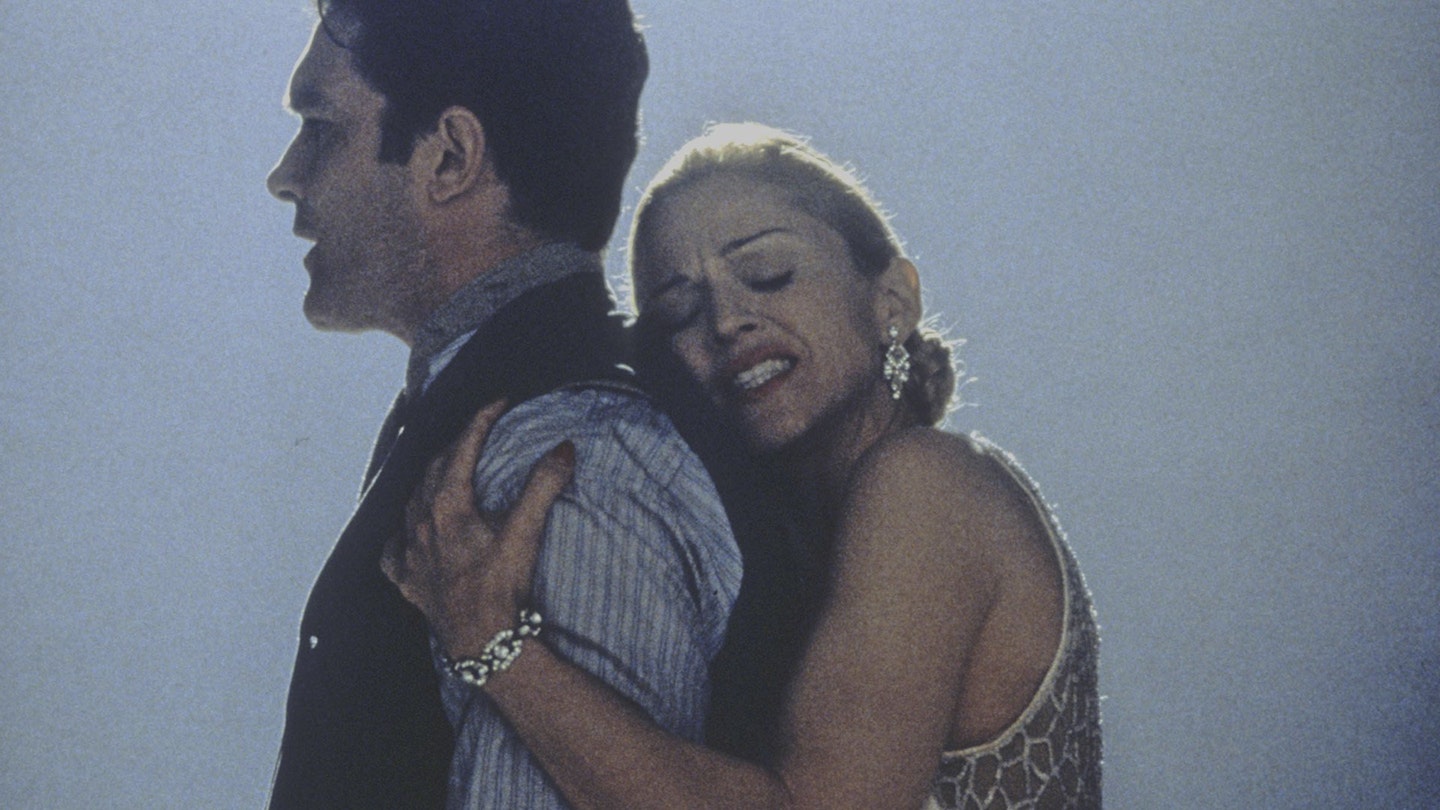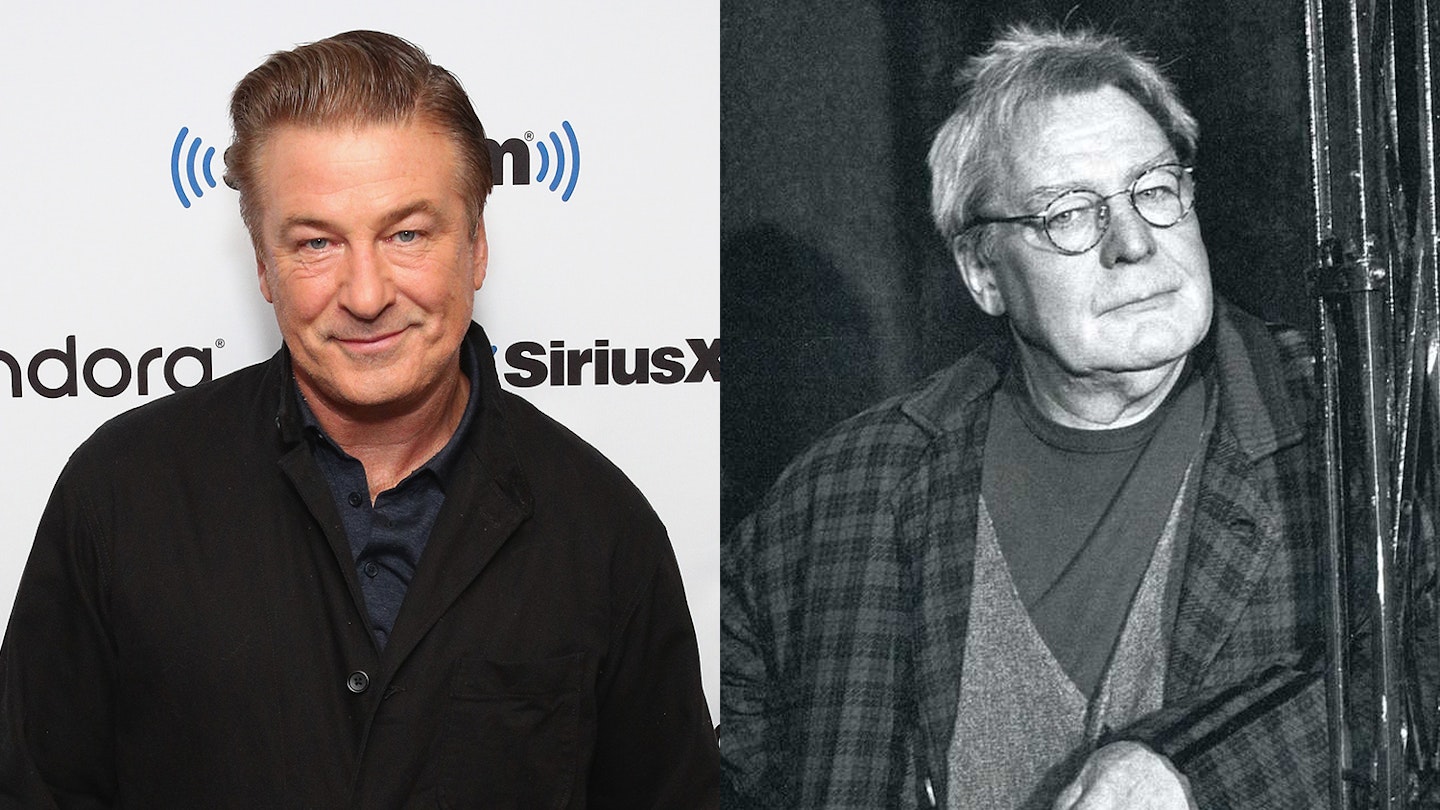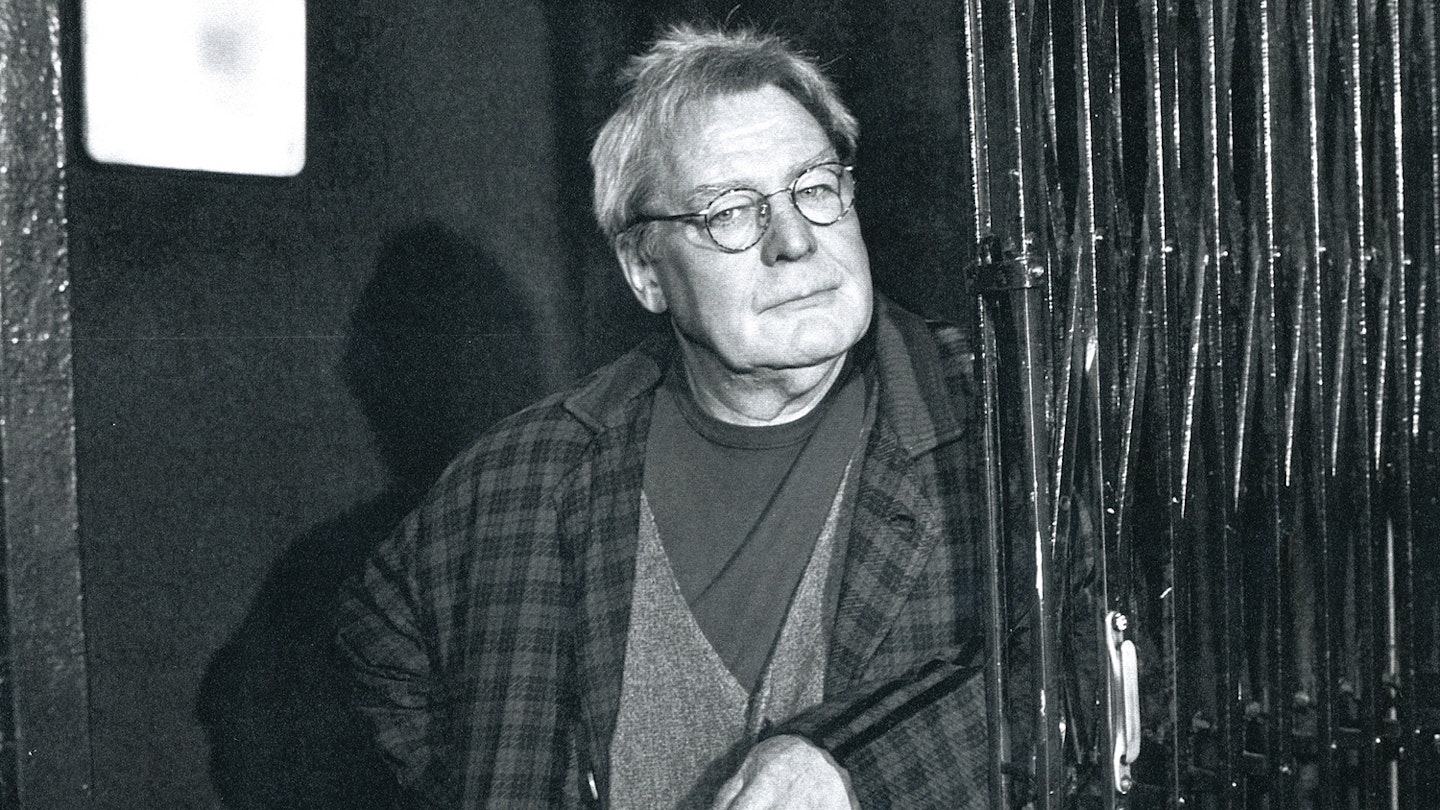Madonna knocks herself out and deserves cheers for the emotional range and humanity with which she sings in Alan Parker's spectacular film. But whether you think the movie is great or grisly, rests in large part on your palate for Andrew Lloyd Webber's music.
In case you've been on Mars, Evita is the 20-year-old mega hit Andrew Lloyd-Webber/Tim Rice musical based on the life of Argentinian icon Eva Peron, who rose from nothing to model/starlet to powerful and revered legend by ruthless bed-hopping and self-reinvention.
There is not an instant Madonna, is on screen when she is not palpitating with intense empathy for Eva and the determination to be electrifying. This is her biggest moment and she knows it. A true diva.
In contrast, Antonio Banderas just has to show up to tango away with a scene. That, is a real Movie Star. His seemingly effortless Che is sexy, surly, sneering and tuneful. And he certainly earns his salary with a virtually ubiquitous presence here a waiter or cleaner, there a reporter or streetfighter to provide narration. Pryce, however, has a thankless task as Col. Juan Peron, but fascist dictators have never deserved good songs. Jimmy Nail also leaps in, decidedly un-Latino, to croon a satirical ballad.
The "screenplay" (attributed to both Parker and one time scheduled director Oliver Stone) makes judicious cuts from the ageing show. Songs frequently serve as voiceover to montages, some of them fab: Eva dancing, screwing and climbing her way up the socio-political strata through Goodnight And Thank You; soldiers and socialites expressing their derision of her in Dangerous Jade, Eva's indulgent sprees intercut with dancers, rioters and junta enforcers.
The outdated adherence to the show's pseudo-opera form is a problem odd lines sung outside the defined "numbers" should have been dumped, or spoken. The solemn pomposity of the work is another, from which Parker relieves us with some masterful staging, eye-poppingly epic set pieces (Don't Cry For Me Argentina, and the most awesome funeral procession since Ghandi) and big, rhythmically varied orchestrations (from a team including Emilio Estefan). The cinematography by Darius Kondji (Seven, Stealing Beauty, The City Of Lost Children) is also a superb asset.


